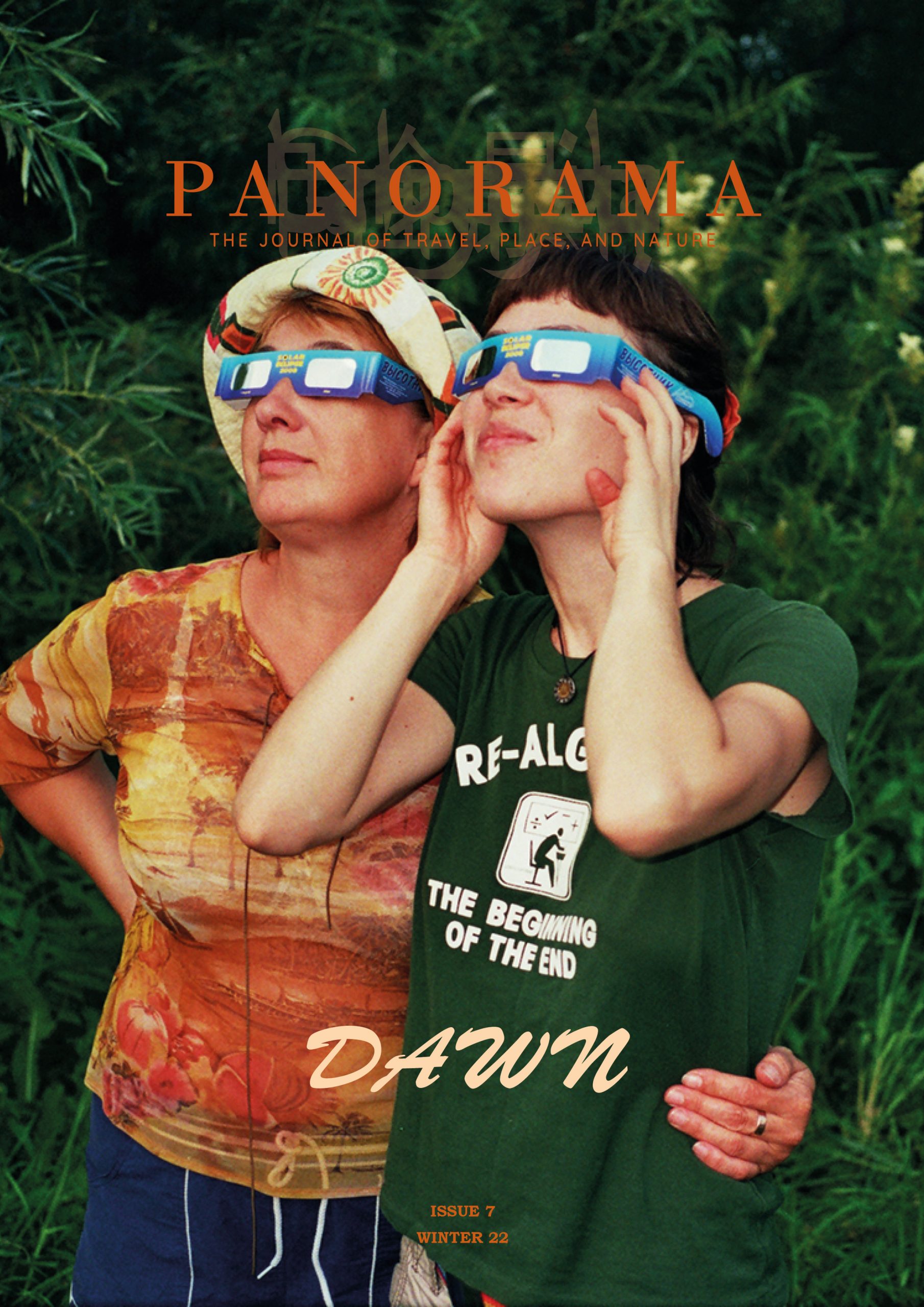The streets were empty, as were all the houses in that village. He walked from door to door, ringing doorbells that made no sound, climbed stairs in silence, crossed lawns and left no mark with his boots. Feeling forlorn, he decided to leave and go elsewhere.
But the next village and the next and those after that were all the same, filled with silent empty shells of brick and clapboard. There were no dog barks or bird songs to be heard.
Much later, maybe a year on, he reached what could only be the last village. The old map he held in his desperate hands ended with this final frontier kind of village. It came to him that this was his village, where he had been born, where he had lived. He walked down a street to the center of the village. This was a homecoming of sorts, but not. Something had changed, was very different. He passed people, but no one seemed to see him. No one acknowledged him.
There was his school, the red brick building he knew so well, and the playground next to it. He opened a door and went inside. The hallways were dark and empty. He went on, looking for his old classroom. When he found it, he entered the room. There was his desk. He ran his fingertips across the ink-stained, tarnished surface. It was here where, during lessons, he would secretly write poems and stories about, oh, all kinds of magical things. He wrote about faraway places and the journeys people took to reach them. He wrote about adventures that never happened but might.
Sometimes, he was discovered doing this by the teacher, a cruel woman who allowed no nonsense and no joy. She had hit him and the others with her meaty fist or the back of her hand. But she was not there now, and neither were his classmates. He felt a kind of sadness as he closed the door of the classroom.
On the school playground, he slid down the slide. There was no sound around him anywhere, no laughter, nothing at all. Maybe they had all gone down to the river, which was close by. So he followed the well-worn path that led down a steep hill from the school and into the woods. Just beyond the woods, the river flowed, sometimes quiet as a murmur, at other times violent after a great rain.
There was no one on the riverside. The river, placid in the afternoon, flowed with a velvet surface. Suddenly, he remembered another day, when an older boy took him to throw rocks in the river. For a short while, they slipped flat stones across the surface. The current was wild and strong that day, and the stones quickly disappeared. The older boy, the school bully, had been kind to him before. But something had changed, like the river itself. The rapids were angry, and so was the bully. With one swift movement, the bully pushed him down the steep embankment into the river, into the marauding current.
He looked away from the river, from memory itself. He turned and went back up the path to the school. He began to walk down a street. It was getting on dusk, and he needed to go home. They would be expecting him. He walked a short distance, and before long he arrived at the place that he knew so well. He saw a light, a dim one, coming from an ornate looking house. The house had turrets and gables, and it was a purple color in the fading sunlight. The house was the last one in the village.
He could hear people inside the house. They were singing hymns that he almost recognized, almost remembered, hymns about tears and crosses and God. He looked up the stairs into the house and decided to go inside. He had not seen anyone he knew in so very long. In the parlor there were people gathered, singing. Their faces were solemn. There was his family. There was the ham-fisted teacher. There were his classmates. There was the bully, a smirk on his face. The smell of roses filled the room.
No one seemed to notice him standing there among them, in plain sight in the parlor, right in front of the singers, and no one looked at him. Then, across the room, he saw a casket against the wall. He could not help himself. He walked to the casket and began to lift the closed lid. What he saw amazed him. He saw himself, a boy with strong features and thick blond hair, his face a portrait of innocence.
He lowered the lid of the casket. Suddenly, the hymns stopped. The people who had been singing became silent. Six men stepped forward and surrounded the casket. With a communal effort, they lifted the basket from the bier. Together, slowly and with great care, they shuffled their way to the door and carried the casket outside. The smell of roses, so strong before, began to fade.
A procession began. His family, his teacher, the bully, other students, neighbors, complete strangers, all followed the pallbearers down the street toward the cemetery.
He hesitated a moment, and then he, too, joined the procession.










